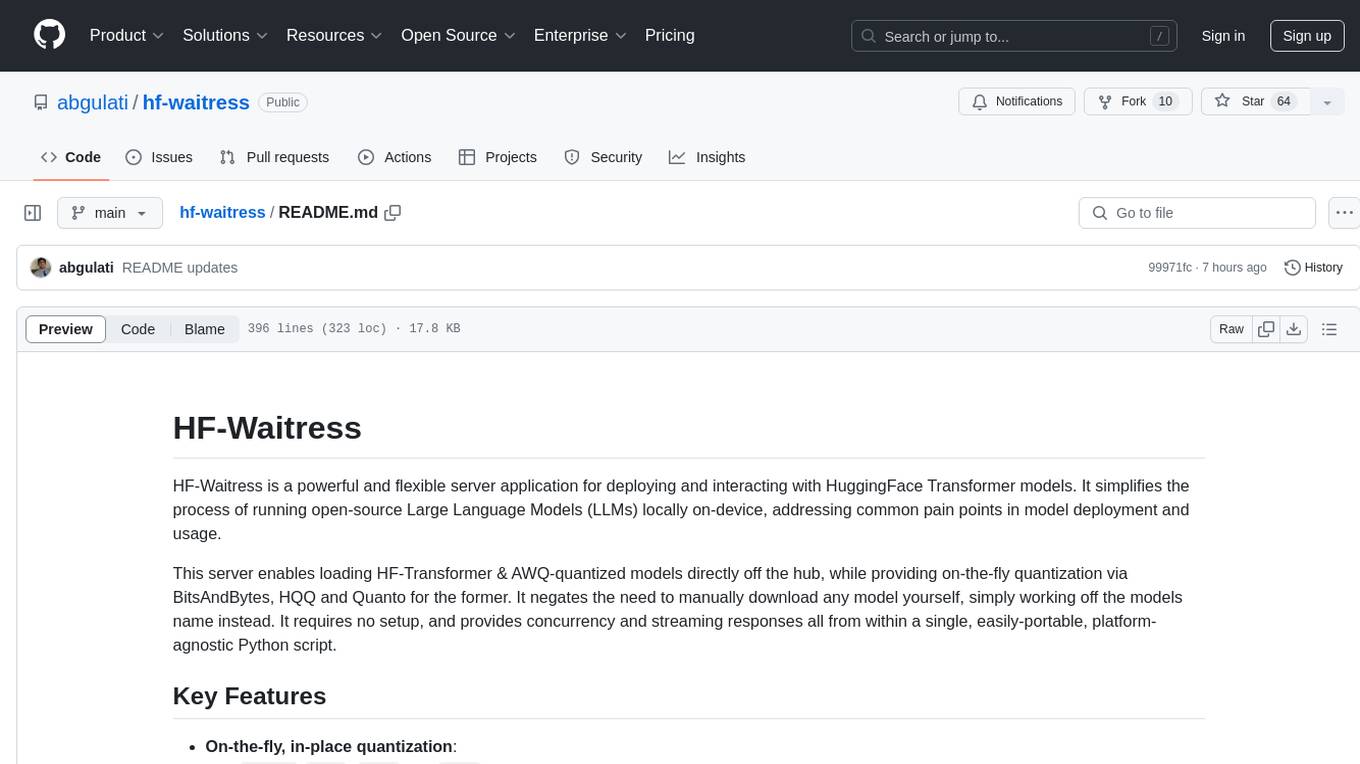Best AI tools for< Quantize Models On-the-fly >
0 - AI tool Sites
No tools available
1 - Open Source AI Tools

hf-waitress
HF-Waitress is a powerful server application for deploying and interacting with HuggingFace Transformer models. It simplifies running open-source Large Language Models (LLMs) locally on-device, providing on-the-fly quantization via BitsAndBytes, HQQ, and Quanto. It requires no manual model downloads, offers concurrency, streaming responses, and supports various hardware and platforms. The server uses a `config.json` file for easy configuration management and provides detailed error handling and logging.
github
: 64
0 - OpenAI Gpts
No tools available